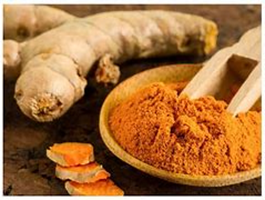Turmeric Benefits in winter: Three Ways to Use It
Turmeric Benefits in winter: Three Ways to Use It
Turmeric, often referred to as the “golden spice,” is celebrated for its many health benefits. Its rich content of curcumin gives it powerful anti-inflammatory, antiseptic, antifungal, and antibacterial properties.

While it’s widely used in Indian cuisine, turmeric is more than just a spice—it’s a superfood with remarkable medicinal qualities. It can boost overall health, reduce pain, purify the blood, and fight diseases.
Additionally, it can improve mood and brain function. The root of the Curcuma longa plant is dried and powdered for use in various forms, including fresh turmeric, which offers maximum health benefits.
Turmeric Benefits in winter: Boost Immunity with Turmeric
Winter is the season when many people, especially children and the elderly, are more susceptible to infections.
Turmeric’s antibacterial and antiviral properties help strengthen the immune system, protecting against illness. While most people use powdered turmeric, fresh turmeric is even more beneficial.
You can add it to pickles, sauces, hummus, or even as a spread for bread or a dip for snacks to enjoy its health-boosting properties.
Support Heart Health and Weight Management
For a morning boost, wash, peel, and chop a small piece of raw turmeric, then combine it with soaked black Bengal gram and a little jaggery.
This mixture helps cleanse the blood, raise hemoglobin levels, and lower cholesterol. Turmeric also aids in weight management and helps prevent heart disease by improving blood vessel function, regulating blood pressure, and preventing blood clots.
Additionally, turmeric enhances liver health by supporting detoxification and improving blood circulation.
Relieve Winter Skin Issues with Turmeric
Winter often brings dry skin, which can lead to cracks and dead skin buildup. A paste of turmeric, honey, and milk can gently exfoliate and hydrate the skin.
If you suffer from breakouts when using cold creams or oils, try blending turmeric with aloe vera gel and applying it to your face to reduce inflammation and promote healing.
Results typically appear within two weeks to a month.
Alleviate Aches and Pains with Turmeric
Turmeric’s anti-inflammatory properties are highly effective for relieving aches and pains. The curcumin in turmeric works similarly to prescription painkillers, without the side effects.
For years, turmeric milk, or haldiwala doodh, has been used in Indian households to soothe muscular injuries and alleviate pain.
You can also add turmeric to your soups, smoothies, or rice, or simply mix it with milk or honey for pain relief.
To improve absorption, combine turmeric with black pepper and a healthy fat like ghee.
Winter-Specific Benefits of Turmeric
Turmeric’s curcumin content makes it an antioxidant powerhouse, offering antifungal, antibacterial, and antiviral benefits that boost immunity during the colder months.
It helps relieve common winter ailments like colds, coughs, sinusitis, and joint stiffness.
Additionally, turmeric aids in eliminating bacterial infections and soothing sore throats.
Three Ways to Use Turmeric in Winter:
- Turmeric Milk: Turmeric milk is a classic remedy for winter illnesses. It helps boost immunity, reduces pain, and improves joint health. To make it, mix ½ teaspoon turmeric with 1 cup of milk, ½ cup of water, and 2-3 crushed black peppercorns. Drink this warm before bed.
- Turmeric Tea: Turmeric tea is another great way to stay healthy in winter. It helps fight colds and boosts immunity. To make, slice a piece of fresh turmeric and simmer it in water for five minutes. Strain and add honey or lemon for extra flavor.
- Turmeric Oil for Dandruff: Dry winter air can cause dandruff and scalp dryness. Make a turmeric oil mixture using olive, coconut, or jojoba oil. Massage it into your scalp for 10-15 minutes before washing it out with shampoo to reduce dandruff and promote hair growth.
Beauty Benefits of Turmeric
The antioxidants in turmeric help protect the body from free radicals that damage cells and accelerate aging.
Curcumin also stimulates the production of your body’s own antioxidants.
For glowing skin, use a turmeric paste made from fresh turmeric and olive oil to whiten teeth or add to your hair care routine to fight dandruff and dry scalp.

Support Brain Health
Curcumin in turmeric has been shown to boost levels of brain-derived neurotrophic factor (BDNF), a growth hormone that supports brain function.
Regular turmeric intake can delay or even reverse brain-related conditions such as Alzheimer’s disease and depression. Starting turmeric early in life can also help improve cognitive function.


